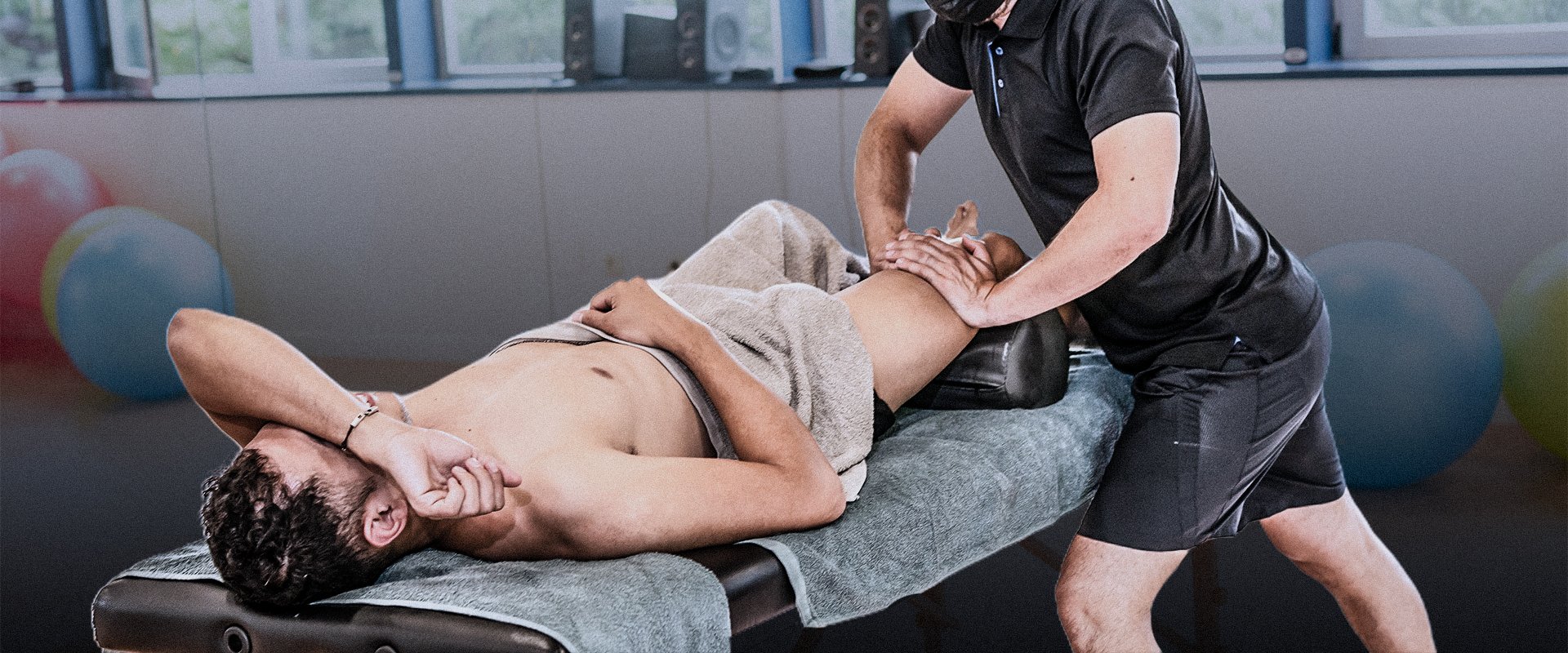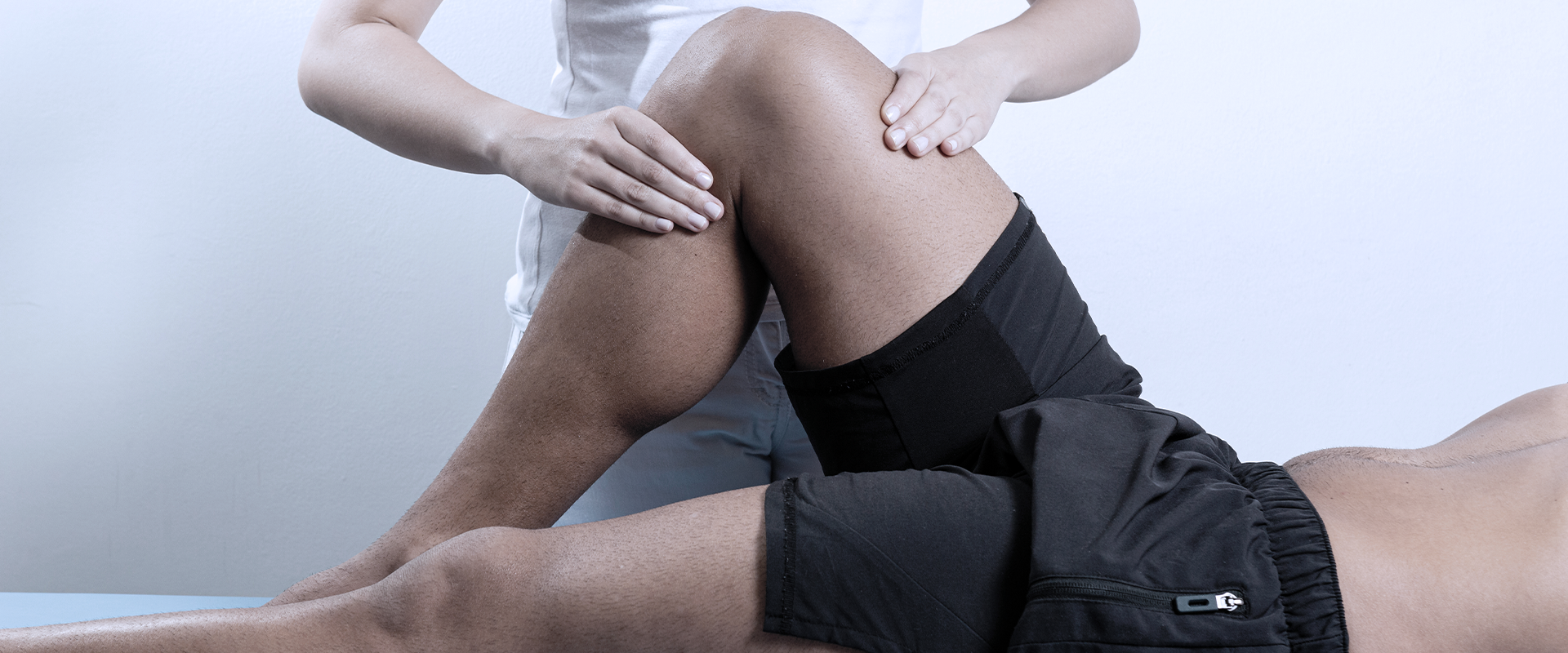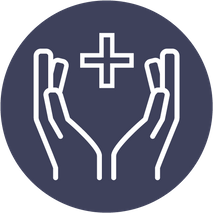
Physical Therapy for ITB Syndrome
AT EVOLVE
Physical Therapy for ITB Syndrome
HOW CAN PHYSICAL THERAPY HELP TREAT IT BAND SYNDROME?
Iliotibial band syndrome or ITBS is an overuse condition characterized most often by pain on the outside of the knee that is worse when the knee is slightly bent such as when coming up to stand or going down a step or while walking or running. The iliotibial band is a thick band of fascia that runs down the lateral side of the thigh and inserts near the knee. Compression of underlying structures near the knee can cause symptoms of ITBS. Most cases of ITBS respond well to physical therapy aimed at addressing underlying causes and restoring pain-free movement.
WHAT DOES PHYSICAL THERAPY FOR ITBS LOOK LIKE?
Like with all conditions, we will begin with an initial evaluation to better understand the pattern of symptoms you are experiencing as well as your goals and needs. We will ask you about the activities within your life that are being impacted by these symptoms as well as about your health history. Your therapist will then perform a physical exam focusing on the involved leg including assessing strength, range of motion and motor control. They will also observe you performing functional tasks like walking, running or going down a step. With this information they can create an individualized treatment plan to address your symptoms. Your treatment program may involve hands-on manual therapy techniques performed by your therapist as well as movements and exercises performed by you in the clinic and at home.
WHAT IS ILIOTIBIAL BAND SYNDROME?
The IT band is a thick band of fascia that runs along the outside of the upper leg. It originates along the iliac crest at the top of the outer thigh and inserts at the outer knee, just below the joint line of the knee. This band is involved in lower extremity motion, provides postural stability and stabilizes the pelvis. It is made up of mostly strong, inelastic fibers which give it the strength it needs to perform its functions. It has very few elastic fibers which means while it can elongate and compress a small amount, it cannot be stretched like a muscle.
Common signs and symptoms of ITBS include:
- Sharp pain on the outside of the knee
- Pain that increases with slight bending of the knee such as right before the heel hits the ground when walking or running or while lowering down a step
- Tightness may be felt in the lateral hip
- A snapping may be felt on the outside of the knee if the band slips over the bony tubercle below it
- Swelling may be noticeable on the outer knee
ITBS is considered a nontraumatic overuse injury and it is most often experienced by athletes performing repetitive motions like runners, cyclers or squatters, however, individuals who sustain positions like sitting, standing or kneeling for prolonged periods can also be at risk. Weakness in the hip abductors may also predispose an athlete to developing ITBS. While the cause of ITBS is often multifactorial, physical therapists are experts in the musculoskeletal system and through a careful history and physical exam can determine how to address your symptoms. Call to Schedule a Consultation! 1-718-258-3300
End Injury Progression
Physical therapy for ITB Syndrome has proven to prevent injury, slow and even stop pain issues, improve performance, and reverse injury progression in many cases.
Relieve Pain
The movements used in this technique can target your entire body helping you to manage discomfort and pain during the course of your physical therapy treatments.
Improve Range of Motion
Posture awareness is an important area to focus on due to the fact that certain positions may cause you further discomfort and pain.
Restore Mobility
You can regain mobility and flexibility by taking part in the stretches and exercises as prescribed by your physical therapist.
How Long Will Physical Therapy for ITB Syndrome Last?
If you decide to work with a physical therapist to help with ITB related issues, your entire treatment plan could consist of around 8-20+ different physical therapy sessions that will each last 60-90 minutes. Once you complete your customized physical therapy treatment plan, you will be able to continue to do the prescribed stretches and exercises utilized during your PT sessions yet in the comfort of your own home.
PHYSICAL THERAPY INTERVENTIONS FOR ITBS
Treatments for IT band syndrome will always be individualized to address an patient’s impairments but several physical therapy interventions have been shown to be helpful in the management of this condition:
Acute pain reduction: In order to allow the acute pain and inflammation that is often associated with ITBS to subside, a period of active rest or significant reduction in activity intensity is recommended. Your physical therapist will advise you on how much time you should be modifying or reducing activities as well as help you find activities that do not provoke symptoms to engage in in the meantime. Also, the use of pain-relieving modalities like ice, heat or taping may be utilized.
Range of motion and stretching: If restrictions in hip or knee range of motion or muscle length are noted during the exam, your therapist may prescribe stretching and mobility exercises to improve these factors.
Manual therapy: Addressing myofascial restrictions, trigger points and other restrictions in soft tissue may be important to address your symptoms. Your therapist may perform these interventions using their hands or may employ other tools like dry needling, foam rolling or IASTM.
Strengthening: If muscle weakness is thought to contribute to your ITBS, your therapist will prescribe a series of exercises to be performed in the home and in the clinic that can improve the strength, power and endurance of key muscles.
Functional training and restoration of activity: As underlying factors are addressed and symptoms subside, your therapist will incorporate more functional activities to ensure proper biomechanics, motor control and coordination when performing these activities. They will also educate you on how to return to your prior level of activity with an eye on prevention of ITBS in the future.
The symptoms of ITBS can surely be a pain but you should feel confident that the physical therapists at Evolve Physical Therapy know how to help. Call today to schedule an initial evaluation.
Mill Basin (located in Harbor Fitness)
6161 Strickland Ave
Brooklyn, NY 11234
Monday: 7am-8pm
Tuesday: 7am-8pm
Wednesday: 8am-5pm
Thursday: 7am-8pm
Friday: 8am-1pm
Park Slope (located in Harbor Fitness)
550 5th Ave.
Brooklyn, NY 11215
Monday: 9am-8pm
Tuesday: 8am-6pm
Wednesday: 9am-8pm
Thursday: 8am-6pm
Friday: 8am-3pm
Gravesend
372 Avenue U
Brooklyn, NY 11223
Monday-Thursday: 8am-8pm
Friday: 8am-3pm
Ready to take the next step to a healthier you?
Contact Us Today!
PHYSICAL THERAPY FOR ITB SYNDROME!
Need physical therapy for ITB Syndrome?
Let our caring and compassionate physical therapists help you with relieving pain while getting you back on your feet comfortably.
Call now to schedule your first PT consultation free of charge.
Call: 1-718-258-3300







